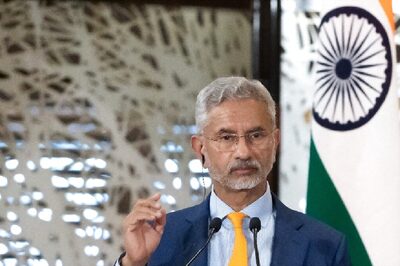
views
New Delhi: Job cuts have been a tough nut to crack for the ruling Bharatiya Janata Party (BJP) in the past year and with the general elections due in less than two years, the government is likely to come up with a new employment policy outlining a comprehensive blueprint to generate quality jobs in every industry.
According to a report by Economic Times, the policy is likely to be announced in the upcoming Budget, which will be the last one from the current Prime Minister Narendra Modi-led government before contesting elections in 2019.
The policy blueprint will be shaped by economic, social and labour policy interventions.
The employment policy will have many sides and applications. It will incentivise employers to create more jobs, introduce economic reforms appealing to companies along with supporting the medium and small scale industries which provide a huge chunk of jobs, a senior government official told ET.
The unemployment issue has been used by opposition parties to attack the Modi-led government.
The job generation speed faced a six-year low in 2015 as only 135,000 new jobs were created compared to 421,000 jobs in 2014 and 419,000 in 2013, as per a quarterly industrial survey conducted by the Labour Bureau under the labour ministry.
Another significant aim of the policy would be to engage more workers in the country’s organised sector because that would get them minimum wages and social security, the government official told the newspaper.
The policy could be impactful in this regard as over 90 percent of workers in India are engaged in the informal sector and hence, does not benefit from any social security law or minimum wage rule.
Jobs in the IT sector have dwindled to 1.5 lakh annual recruitments from over 3 lakh recruitments in previous years. Top firms of the sector have been reported to get rid of both its top brass as well as entry-level employees.
“I have been working in the IT sector since four years now. Things have been bleak of late. Quite a few people have already been laid off and new recruitments are on hold. Appraisals have taken a hit as well. There are definite inhibitions in the employees who are working in an environment that does not guarantee job-security,” said an employee of Tech Mahindra who refused to be named.
Firms such as Cognizant, Infosys and Wipro among others have also axed jobs on grounds of automation.
“We were told that they are in a process of internal overhaul. They are into automation of a few wings because of which jobs are on the cut. Also, most of the clients are getting into cloud operated softwares the Indian industry for which is yet to be ready,” said a former employee of Wipro, requesting anonymity. He was laid off in April this year with a three month severance.
After a survey conducted by job site Naukri.com, the report said, "The overall job market saw an 11 percent fall in new jobs, with IT-software industry most hit. IT-Software industry was hit the most with a 24 percent decline in hiring in April as compared to April 2016."
“April jobs index saw year-on-year fall in major metros - Delhi/NCR, Mumbai, Bengaluru and Chennai. Hiring activity saw a fall in telecom, BPO, insurance and construction sectors during April as compared to April 2016. Key industries like construction and BPO/ITES saw a 10 per cent and 12 per cent fall, respectively, while banking saw a 11 per cent increase in hiring during April 2017 as compared to April 2016,” it added.
While the IT sector garners all the attention, other avenues haven’t been as encouraging as well. Indian Railways has been quietly offering voluntary retirement options to its employees above a certain age without taking in as many new recruits.
“I had five more years to go before my retirement age but I was asked to voluntarily retire with reasons such as excess staff. I have my colleagues in other departments who have been instructed to do the same. When asked, the higher authorities state reasons such as age, need of a relatively new skill-set among others. However, we haven’t seen as many recruitments to support the argument,” said a commercial-parcel department employee of the Indian Railways posted in Howrah, West Bengal.
The media industry, for that matter, witnessed rampant downsizing of jobs in the immediate past.
Earlier his year, Kolkata-based ABP Group asked more than 120 of its journalists to resign with a severance. Pages of its flagship Bengali daily ABP and english daily The Telegraph were reduced considerably as well. The Telegraph’s popular Sunday magazine Graphiti was also lifted off. The spate of job cuts has not only been limited to relatively smaller media houses, larger counterparts like HT Media also axed a 100 plus jobs, bringing the curtains down on editions of Hindustan Times in Kolkata, Ranchi, Bhopal, Indore, Varanasi, Kanpur and Allahabad. HT’s business bureaus in Mumbai and Delhi were also shuttered down and the work outsourced to its sister publication, Mint.
Diminishing revenues generated from ads especially after demonetisation is primarily being described as the foremost reason for axing of jobs in media houses.




















Comments
0 comment